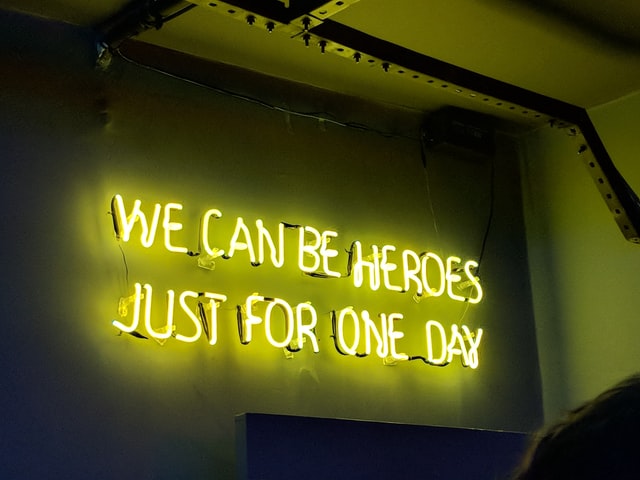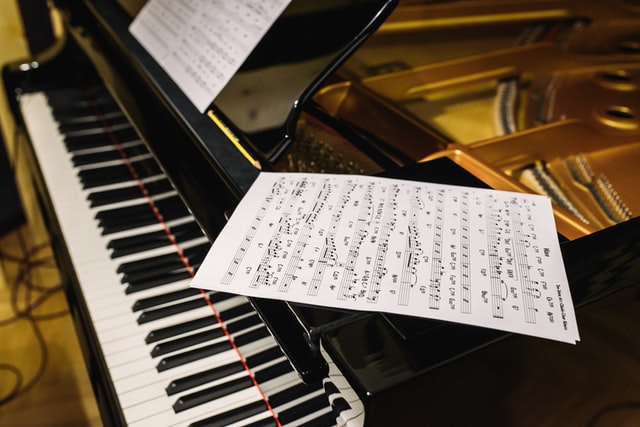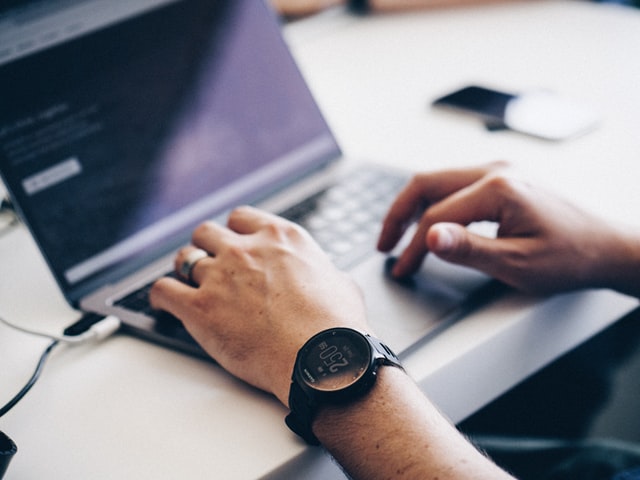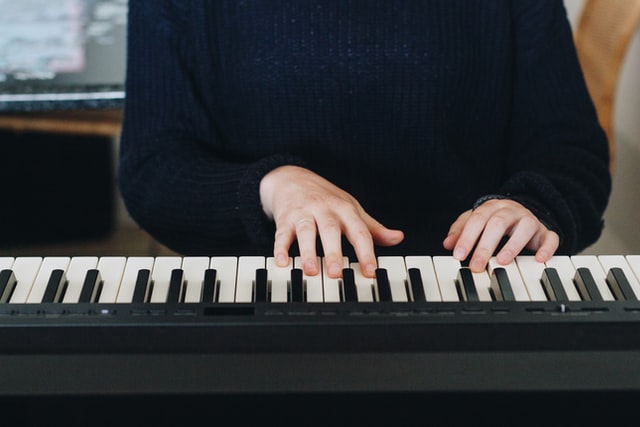Is It Easy to Learn Piano by Yourself
Self teaching piano. Can it be done? There is always something very impressive about hearing that someone is "self taught" when it comes to any instrument. A lot of people assume that playing the piano is a bit too difficult to work out on your own and that you will, in fact, need a teacher in order to help you out.
To properly understand whether self teaching piano is possible you need to fully understand what the term means. It is definitely more than possible to teach yourself almost any instrument, but what is meant by the term "self-teaching"?
If you are new to the piano you might think "wow, this is impressive, someone has taught themself how to play the piano!" But it might not be as impressive (or unattainable) as it first seems.
What is Self Teaching Piano?
The first time you hear the term "self teaching" you might think of someone sitting at a piano, painstakingly working out what each note is, and gradually piecing together a song "by ear". This is not the case at all. It would take you a lifetime to work out the piano with no help from any learning materials.
Most people's definition of "self-taught" or self teaching piano is simply having no experienced pianist in the room with you to guide you through the process. Instead of employing a piano teacher to take you through it step-by-step, you can use learning materials to find things out for yourself. You may or may not follow a specific course or curriculum, but the key is that nobody is there in person specifically showing you the steps to play the piano.
If you have learned by seeking out information online, following tutorials or even a curriculum put together by someone else, you are definitely a self-taught musician. If you haven't attended classes or studied the piano in an official setting such as a school, you can definitely call yourself self-taught.
Even following a full course such as the Pianu academy, you are still "self-taught" due to the fact that you have had to go it alone.
In the rest of this guide, we're looking at the pros and cons of self teaching piano, whether it is a realistic option for you or whether you need to bite the bullet and go to a piano teacher.
Famous Self Taught Musicians
A quick bit of inspiration before we go into some of the more practical aspects of playing the piano and self-teaching.
Not all of those on the list are pianists, but we thought it worth including self taught guitarists, too, as there is an argument to say that teaching yourself how to play the guitar is even more of a challenge, with difficult hand-positions and finger strength required.
Thelonious Monk
The jazz icon is described as "mostly self-taught". According to this post, "at the age of five or six, he taught himself to read music by picking out melodies on his family's piano and looking over his sister's shoulder as she took lessons".
Monk's ability on piano was incredible, and he could improvise as well as write and perform songs, showing that even when self teaching piano, the sky is the limit.
Jimi Hendrix
Okay, so he wasn't a pianist, but the story of Jimi Hendrix teaching himself is incredible. He even started playing with a right-handed guitar when he was left-handed, and had to awkwardly play in an "upside down" fashion.
This shows one of the good things about self-teaching (improvising and finding your own way to do things) and the bad aspects of self-teaching (nobody correcting you to show you easier methods of doing things).
Hendrix is widely known to be one of the greatest musicians of his time, and is relevant for anyone who wants to learn an instrument and use the "go it alone" method.
David Bowie

Bowie was enigmatic, and in musical terms he was a bit of a "jack of all trades". He could play a number of different instruments, from Saxophone to piano, and was famous for teaching himself basically all of the musical knowledge he had.
Bowie's skills as a songwriter were incredible and though many know him for being a frontman and singing, the musical talents he had were clear.
These are just a few examples of self teaching piano and other instruments, but we have deliberately picked some musicians who would have been learning many decades ago. If you compare these to the aspiring pianists and musicians of today, and consider the learning materials available now compared to 30 years ago or even 50 or 60 years ago, the contrast is stark.
I'm sure a young Thelonious Monk would have loved to have the ability to search for something on Google or watch some YouTube videos to perfect his technique…this leads us nicely on to our next point about self teaching piano.
Self Teaching is Easier Than Ever

There is a real boom in people self teaching piano and this boils down to the fact that it is easier than ever. If you think about how tough it would have been when there were no smart devices, laptops or websites to get information from, you will quickly start to realize how much more of a possibility it truly is.
If you wanted to teach yourself in the 60s, for example, you might have been relying on books, fragments of information and maybe some friends who could play a little.
It was possible to self teach piano back then, as is proved by our list of musicians above, but it is so much easier now.
Let's look at an example of something you might get stuck with; finger and hand positions. If you weren't sure which fingers should be playing which notes or how your hands should be positioned on top of the keyboard back 30 years ago, you would have struggled to find this information without a specific piano teacher. Now, it's a 30 second search on YouTube…
Information is simply much easier to obtain, and the fact that you can get visual and audio demonstrations in the 21st century means that you will probably start to understand the basics of playing the piano quickly.
A lot of people get so much more out of learning in this visual way, but this is one of the ways in which the learning materials have improved so much. You can learn in whichever way suits you. If you are the type of person who feels you can get a lot out of having your nose in a book, then you have more choices than ever before for reading materials. Would you rather just watch videos and try and replicate what the piano player is doing? That's fine too. Self teaching piano is all about finding the method that works for you and dedicating time to it.
In many cases, you can even learn in an interactive way. The way Pianu's songs and course are built means that you can plug a USB keyboard into your computer or another device, and connect to your browser. The website can tell you whether or not you are playing the right notes! Interactivity is something that people could only have dreamt of when self-teaching 20 or 30 years ago.
Technology That Can Help Self-Teaching

It is definitely worth discussing some of the technology and learning materials that can be accessed in order to help you on your self teaching journey. Some of these are obvious, some are less straightforward ways in which you can learn how to play the piano.
- A USB-MIDI keyboard. Any digital piano with a USB-MIDI connection can help you to access interactive online learning platforms which can literally point out when you are going wrong. A lot of these platforms, like Pianu's Academy, aim to help give a "game" feel to playing the piano, but also build a solid level of knowledge.
- A tablet. Tablets can be immensely helpful when it comes to learning how to play the keyboard or piano. Though a lot of people like to use laptops, they aren't quite as portable. Plus, there are many different apps you can install on your tablet, and courses for piano that can be accessed. Tablets will sit nicely on top of a keyboard or music stand, too, and a laptop might not.
- Smartphone. It sounds like such a basic possession for most of us now. Smartphones are everywhere, but you might not have properly considered how much they can help with your piano journey. Even if you are in a location where you can't take your piano, you can read ebooks, watch videos, and even practice within piano apps.
If you have any of this technology available to you then you are in a far better position than many of the musicians who have taught themselves to play their instruments. You don't even need the best, top-end equipment to get started. If you are considering which keyboard, digital piano or acoustic piano to buy, we've provided a guide to piano equipment for beginners, too.
Following a Course or Going it Alone?

Self teaching piano doesn't mean that you have to be totally on your own and not have any guidelines for what to learn and when. There is so much information online now that you really can find out pretty much anything about playing the piano on YouTube or elsewhere, but it is incredibly difficult to get a consistent message if you are constantly flitting from video to video.
Following a specific course is probably the best way for most people to learn how to play the piano. This is similar to the approach a piano teacher would probably take; showing you the basics first and building upon this knowledge. If you don't do it this way, you could get many months into playing the piano and realize you have been doing something wrong, or that you have a number of gaps and flaws in your technique.
Following a piano course does come with some expense. Some are more affordable than others, but they are a fantastic way to go from an absolute beginner to a reasonably strong piano player. The Pianu course is laid out in a way that means you don't specifically need any knowledge to get started. It's a course suitable for pretty much anyone.
What's more, the course is interactive, as we've already stated. This negates one of the biggest downsides to teaching yourself, which can be failing to realize when you have made an error. Pianu can "score" your piano playing and give you feedback, in a similar way to learning with a teacher in the room with you.
Some online courses are more expensive than others, but the key consideration is how much self teaching piano will save you. Piano lessons are costly. If you pay $10 or $20 a month to access a great piano course online or via an app, you might be saving $200 compared to having one weekly lesson.
Following a course like this also means that you are not bound by time anywhere near as much as piano lessons, where you have to be in a certain place at a certain time. With Pianu, you can have a self taught piano lesson on the bus, at 5 am in the morning or while you are eating your dinner. It's really up to you.
Going it alone means finding information from a lot of different sources. You might realize that you need to brush up on piano scales and perform a simple search for "piano scales", you will find loads of content including videos, text content and graphics. You will also find information that is convoluted, and taught in different styles with different focuses. Even famous teachers all have a different approach to learning and teaching the piano, so if you are just plucking information from anywhere you can find it, it may be a struggle to find the exact information you need, or for it to make sense with the rest of the piano info you've sourced.
A well-made course will guide you through all the basic information you need and gradually introduce things at a manageable rate. If you are teaching yourself, it is easy to dive in at the deep end and you will then come across many concepts that are confusing for beginners. For example, you may have a song in mind that you really want to learn, but it proves to be very difficult. With a course, the songs are introduced at a manageable rate and all of the piano techniques, skills and concepts you need are introduced before you try to play it.
At Pianu, our course gradually introduces new songs that are slightly more difficult than the last, or that teach a new idea or technique that you will need to learn. We've spent years creating our system, built in a way to keep you engaged, having fun, and learning all the skills you need.
Downsides to Self Teaching Piano
If you do decide not to work with a teacher, are there any downsides? We've made a lot of cases for learning how to play piano without the help of a teacher or tutor, but this might not be the ideal method for everyone. Some people are better suited to having lessons and keeping human interaction throughout their piano lessons. As with most decisions in life, there are pros and cons to each outcome. Luckily, having lessons doesn't stop you from using the same self teaching piano methods, so you can still brush up on knowledge in your own time, too.
So, what are some of the cons of self-teaching piano?
- You might get distracted, or give up too easily. This is something people find very often when it comes to learning an instrument. When it gets tough, they give up. In order to stick with playing the piano, you are going to need perseverance. In fact, it is probably the single most important thing that aspiring pianists need if they are going to become successful. With nobody guiding you, and no regular weekly slot having a lesson, it is all too easy to step away from the piano and put Netflix on. To self-teach, you need to be a self-starter.
- You might develop bad habits. This is becoming less common nowadays as people tend to have access to video content and interactive content, which makes it easier to compare your technique to what is correct, but it is easy to develop bad technique and poor habits that can be hard to shift. This list of bad habits should help.
- Missing things entirely. If you only ever focus on how to play pop songs, for example, you are probably going to miss certain techniques. If you don't follow a course, you might miss out on specific lessons and not gain the full knowledge required to be a successful musician. This is fine if your goals are just to be able to play a few songs and impress your friends, but not if you have bigger ambitions.
The Best Things About Self Teaching
We've already talked about some of the great aspects of self-teaching an instrument in this guide, but let's revisit and summarize for people who are still undecided on whether to go the "traditional" route or whether to teach themselves how to play the piano.
- It's cheaper than lessons. Even if you were to sign up to multiple online learning platforms, the price is likely to be far lower than getting a piano teacher to visit your house once a week and teach you how to play. Many platforms for learning piano online have free information or free trials to get you started.
- Go at your own pace. This is true to an extent with lessons in person too, but online courses let you progress at the speed you wish, with no external pressure. In a group class, you might struggle to keep up with others or you might speed ahead. Neither is ideal.
- Learn at any time. Sunday evening? No problem. 4 am? No problem (just don't wake anyone). You can learn whenever you want if you are teaching yourself, so if you work a job with unsociable hours, for example, you can fit your practice time around this.
- Focus on the areas you will get the most out of. If you want to play chords and learn piano as an accompaniment to singing, you can do this and not have to worry too much about areas of knowledge that might not form such a big part of your future playing the piano.
- It's less of a social commitment. This could be a good thing or a bad thing depending on your outlook. Some people like the idea of seeing others, but not everyone enjoys it, and it can make some people anxious about the idea of learning to play the piano. The social side is removed if you are teaching yourself in private.
This decision is an individual one to make, and it is easy enough to switch if you find that in-person lessons don't work out or if the course you are following is confusing you a bit. It's a good idea to think about which you are likely to get more out of, but they're not mutually exclusive, either.
Conclusion
As we always like to point out here on Pianu, there are many different ways to get to the end result of being an accomplished piano player, and whether you aim to teach yourself or learn in a more formal environment, the end result will probably boil down to whether you are driven enough and give yourself enough time to build your piano knowledge.
The good news for those who plan on self teaching piano is that it is simpler than ever to do so, with more learning material being produced all the time, so you can find the course that is right for you, and build up your knowledge of playing the piano at a pace that suits.
Please follow and like us:
Let your friends know about us.
Source: https://pianu.com/blog/self-teaching-piano
0 Response to "Is It Easy to Learn Piano by Yourself"
Post a Comment